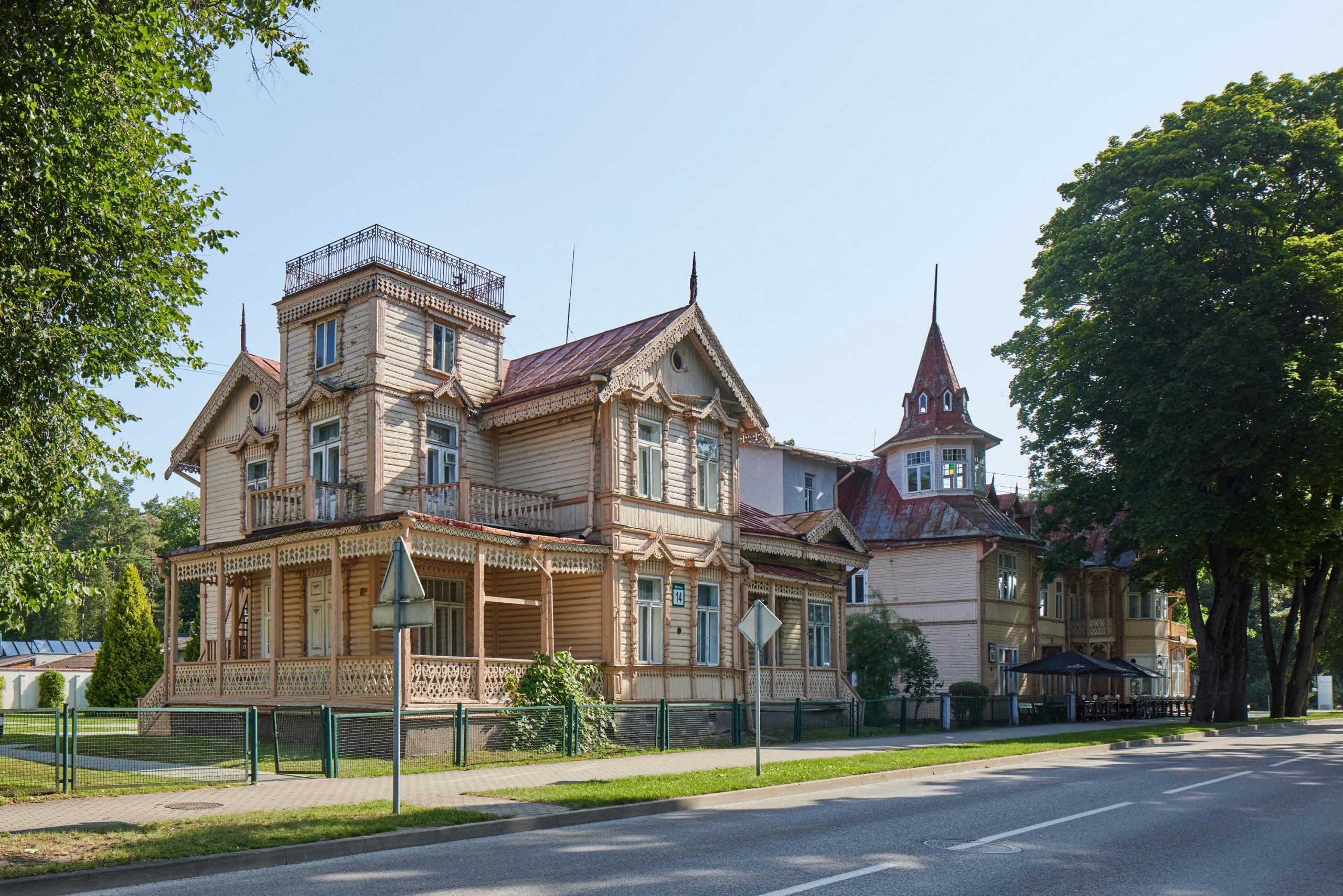
9. Dainava Hotel Complex
TagAbout
Located in the historical site of Druskininkai, the Dainava building complex takes visitors back to the different periods of the Druskininkai resort – the Tsarist, interwar and post-war Soviet periods – revealing how holidaymakers, their needs, and the architecture that reflected them have changed. The jewel of the complex is the villa on Maironio Street, reminiscent of a wooden chalet in the Alps, and notable for its abundance of authentic, crochet-like wooden carvings, including pediments above the windows imitating Slavic towel holders. The Jewish entrepreneur Meyer Frenkel’s villa Imperial takes one back to the romantic interwar period, when holidaymakers began to demand sophisticated services such as private bathrooms, “sun baths”, concerts and dietetic cuisine. The villa is home to the bohemian café Širdelė, which to this day retains its authentic interior with chandeliers specially designed for the café. The Dainava hotel is an example of modernist architecture, dating back to 1965, and is decorated with works of art by famous Lithuanian artists, such as the sgraffito fresco Dainava Country by the monumentalist artist Angelina Banytė, which depicts the everyday life of rural life in the Dzūkija region. This unique complex of buildings is known not only as the headquarters of the Druskininkai Poetic Autumn festival, but also as a place where famous Lithuanian writers, such as Justinas Marcinkevičius and Tomas Venclova, lived and worked.
BackAddress
Maironio st. 22Visiting time
2023 September 9 10:00–19:002023 September 10 10:00–17:00
Tours begin every 30 minutes and last 60 minutes. Last tour on Saturday starts at 7:00 pm., on Sunday – at 5:00 pm.
No in-advance registration is required. Access to the buildings will be managed by forming queues.
- 20